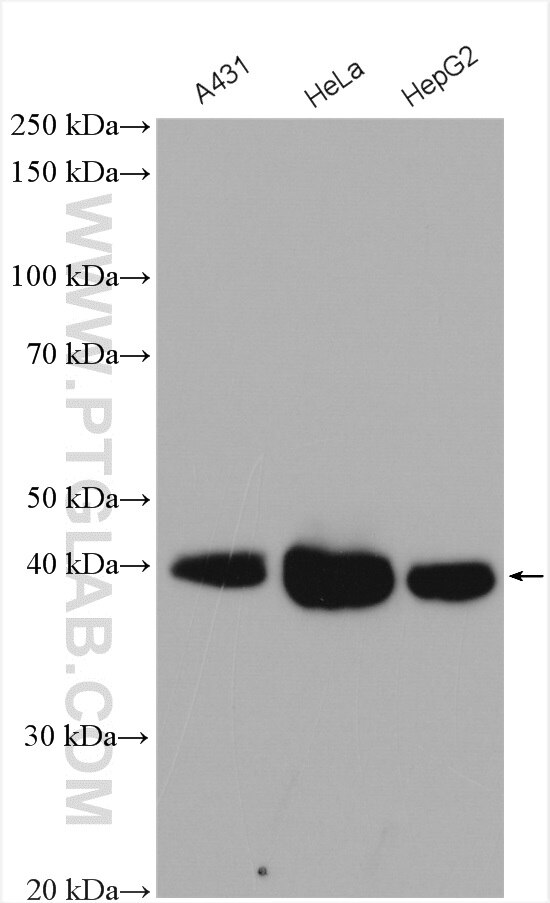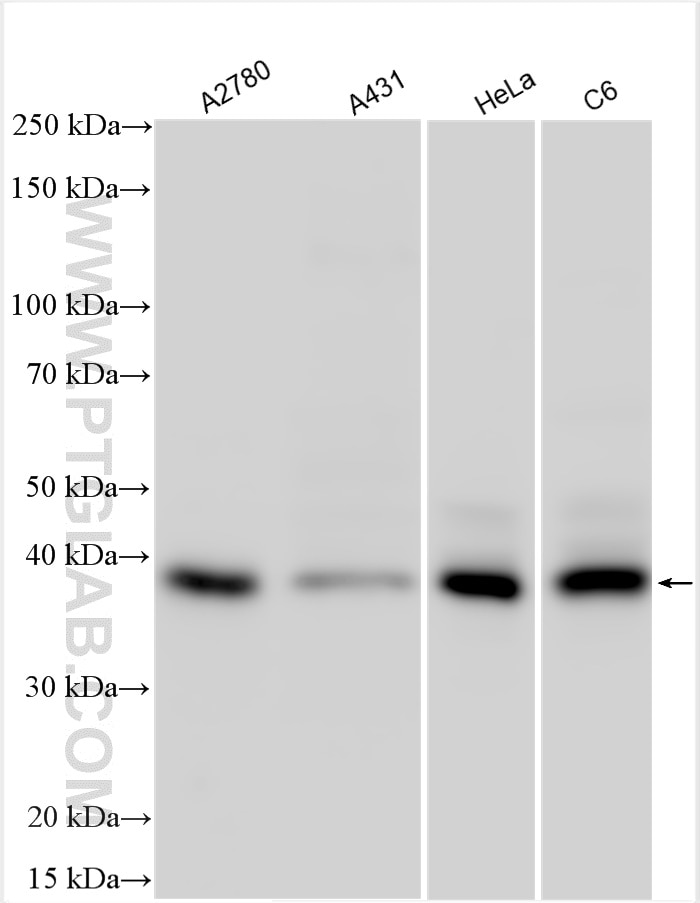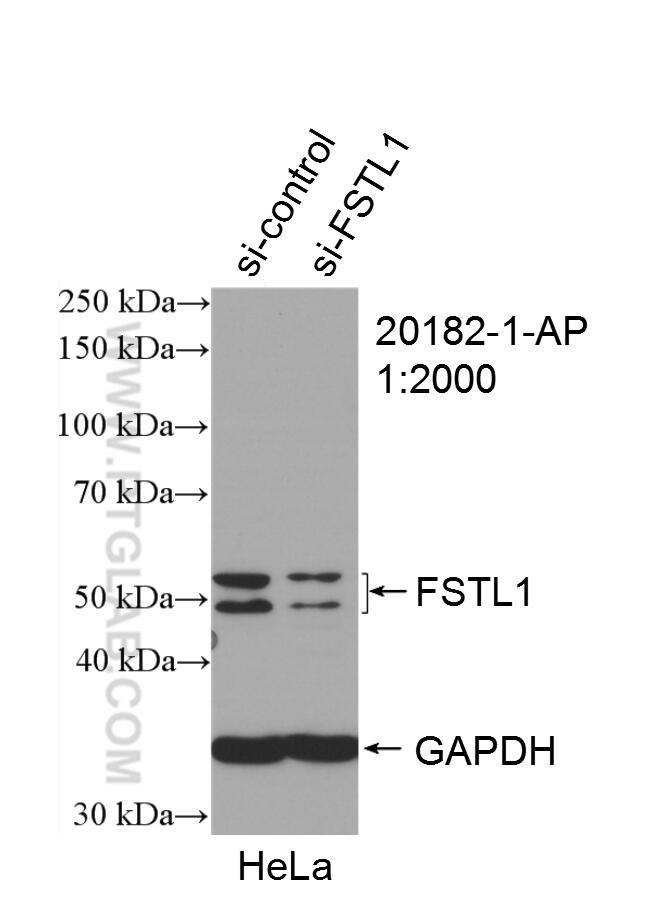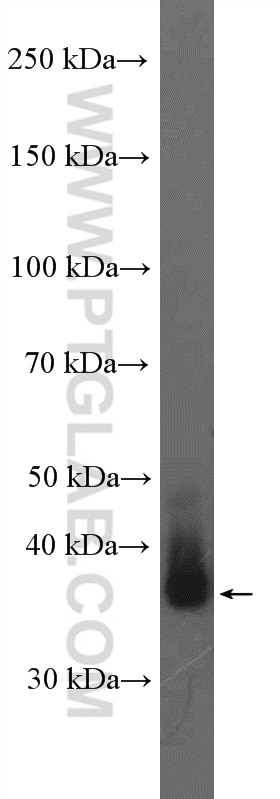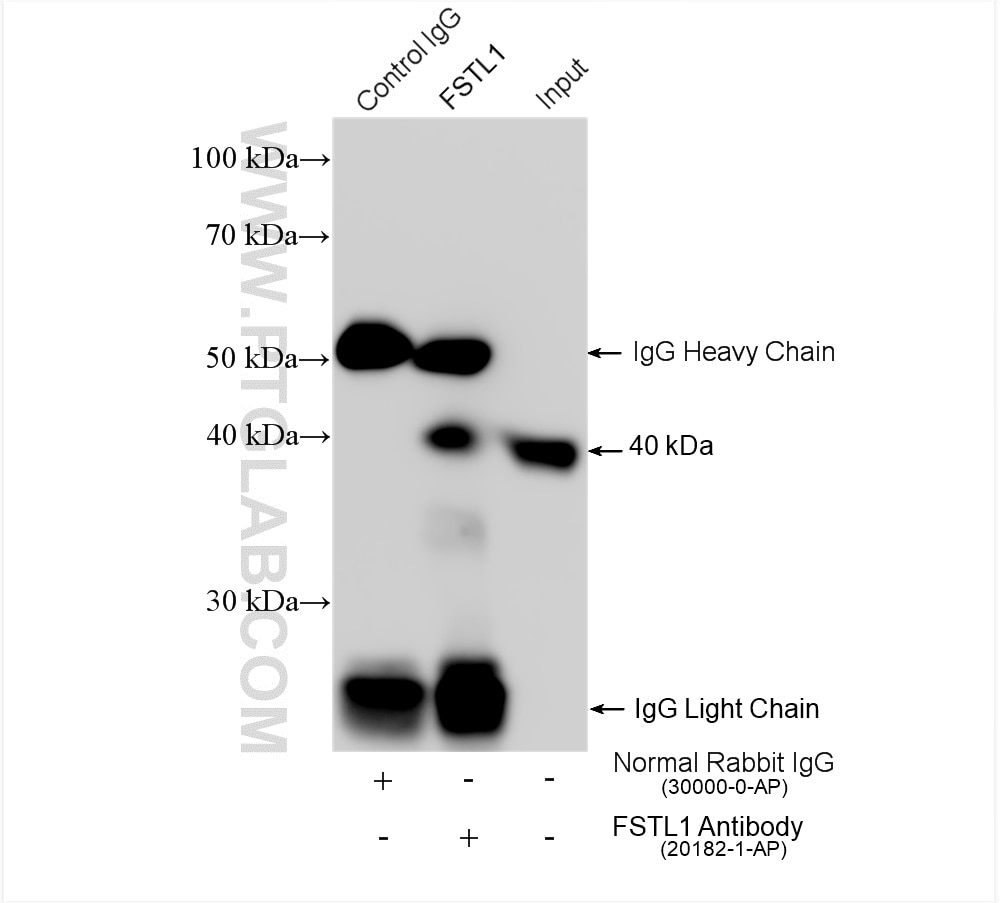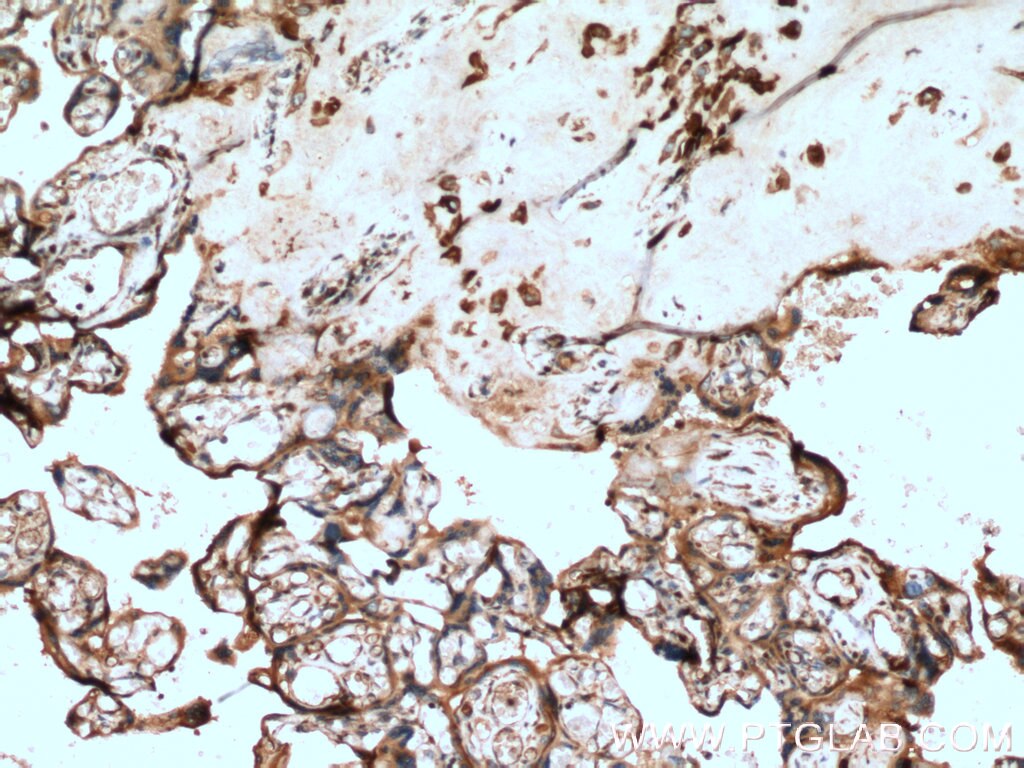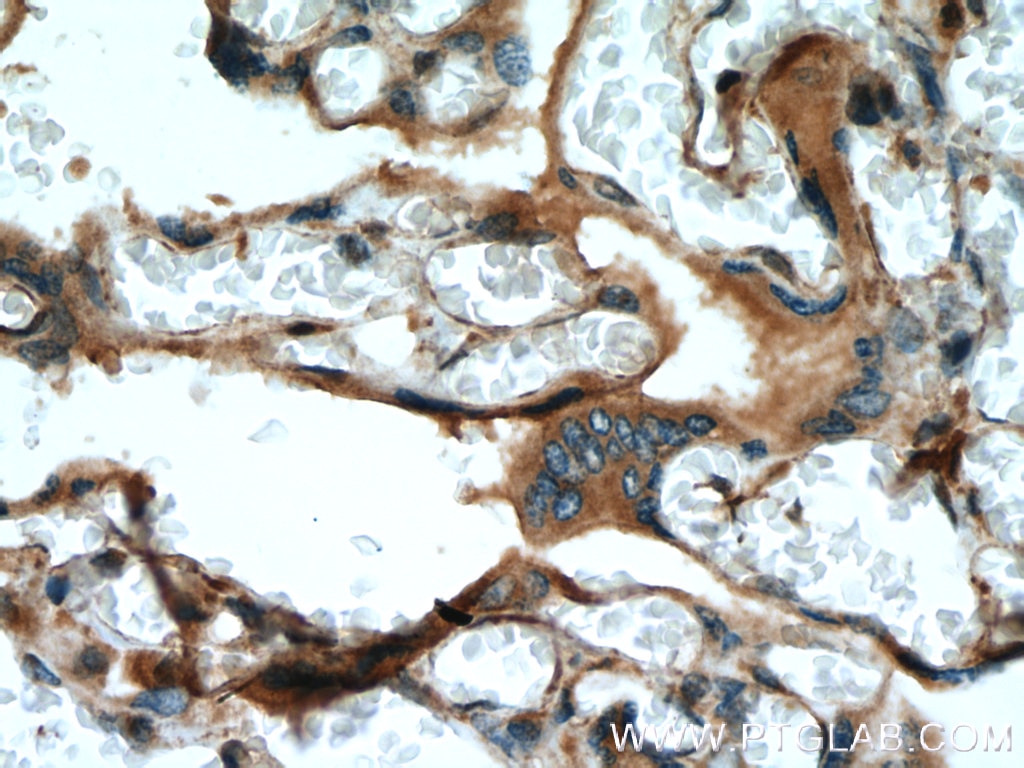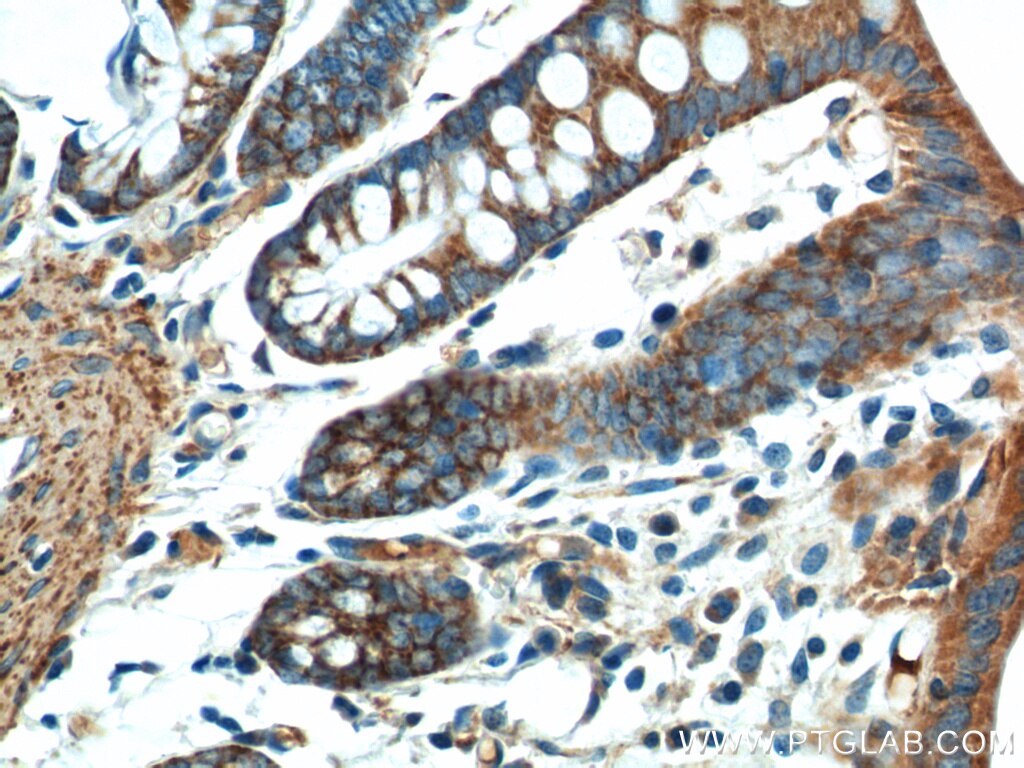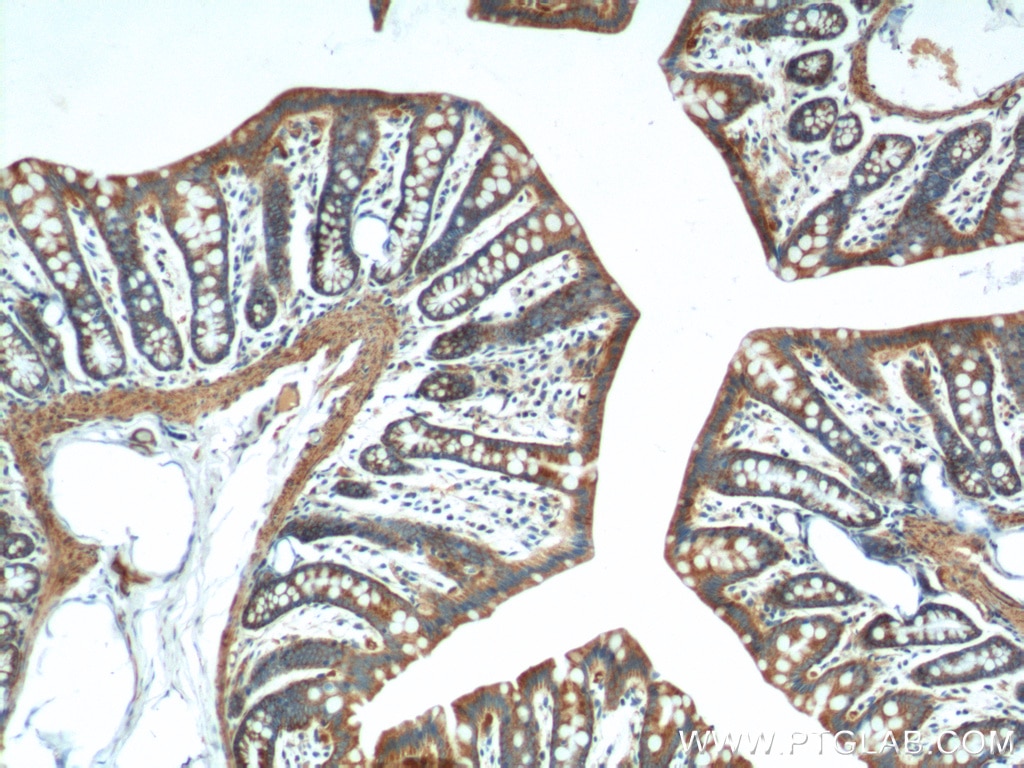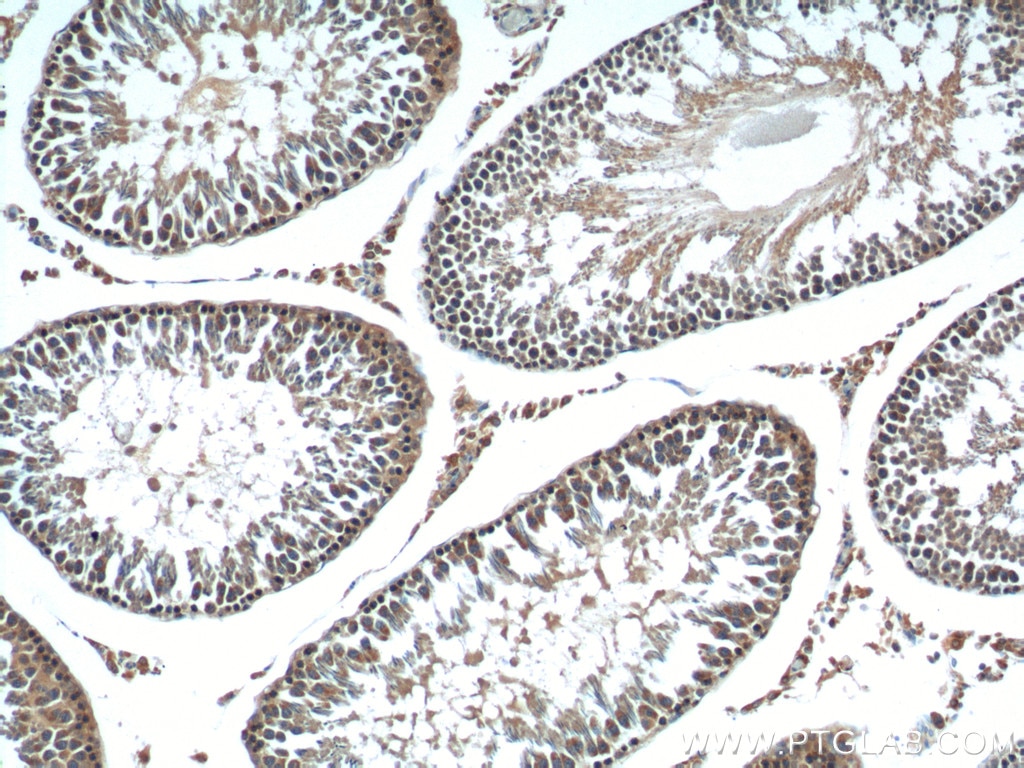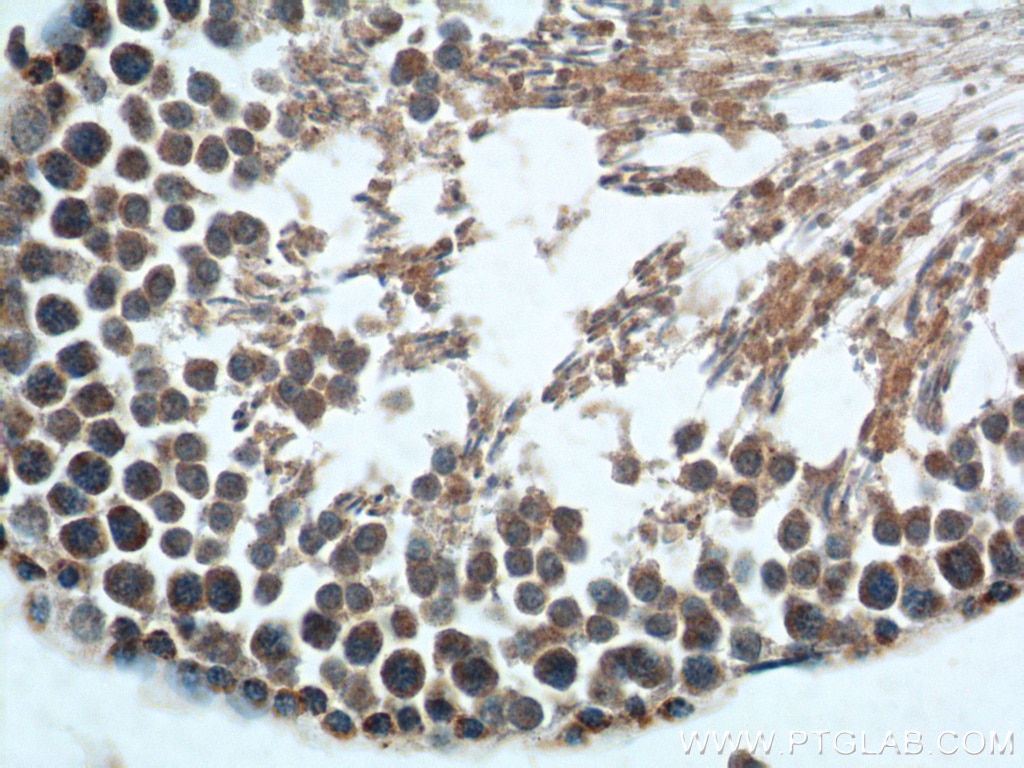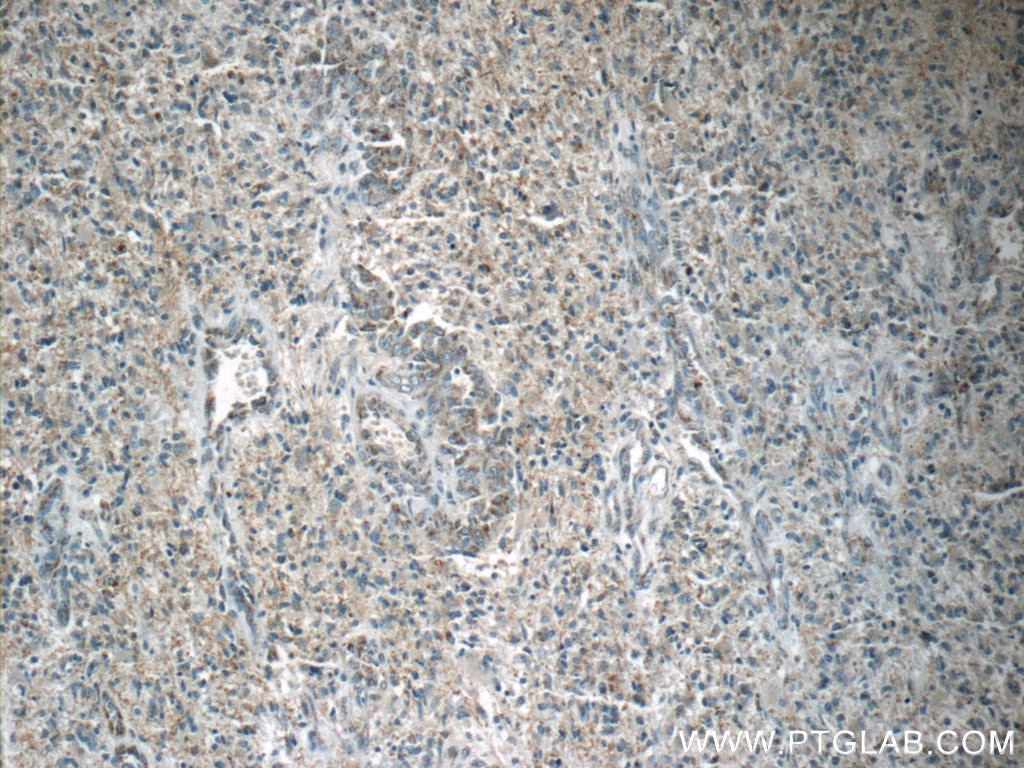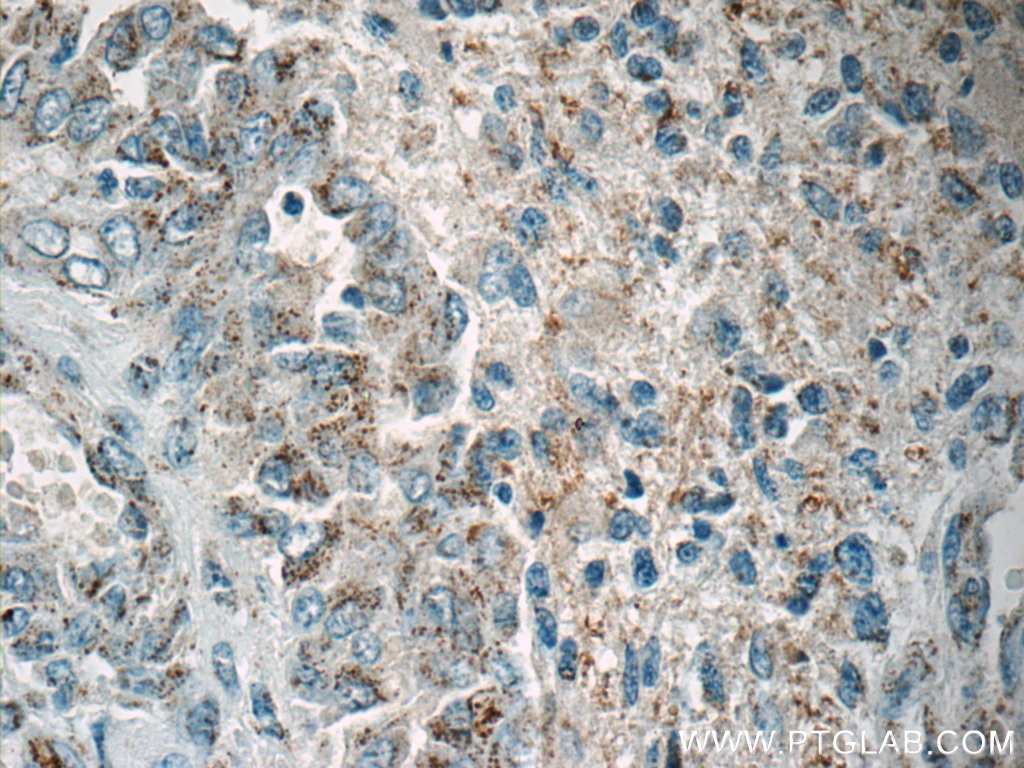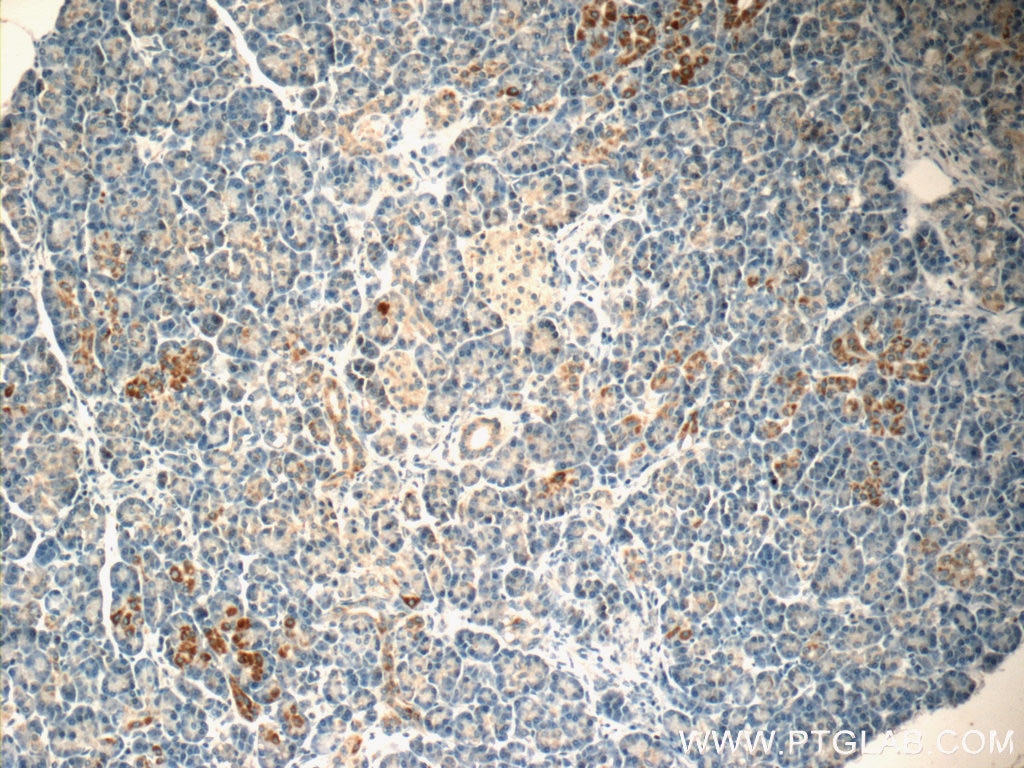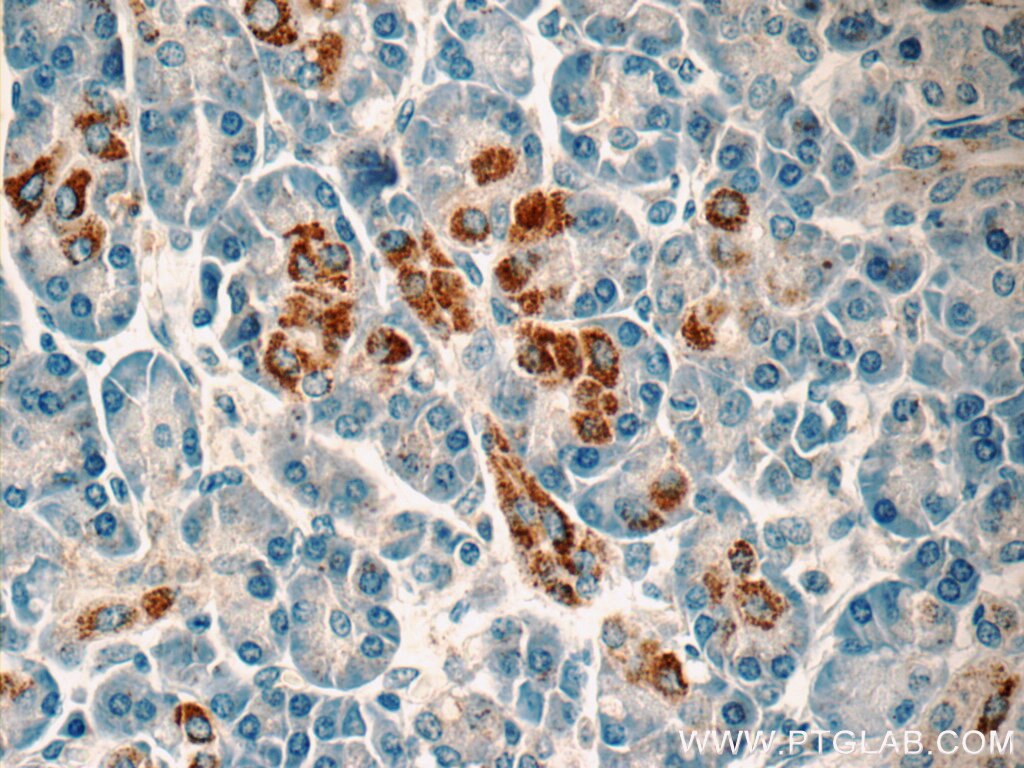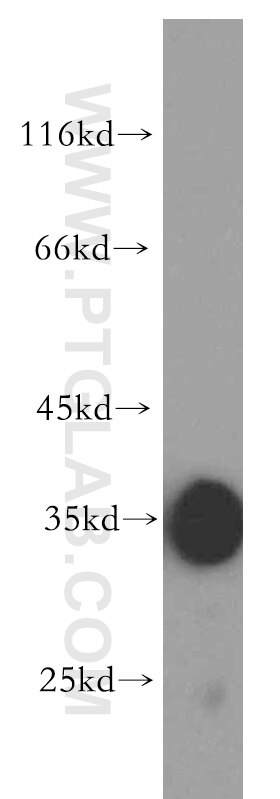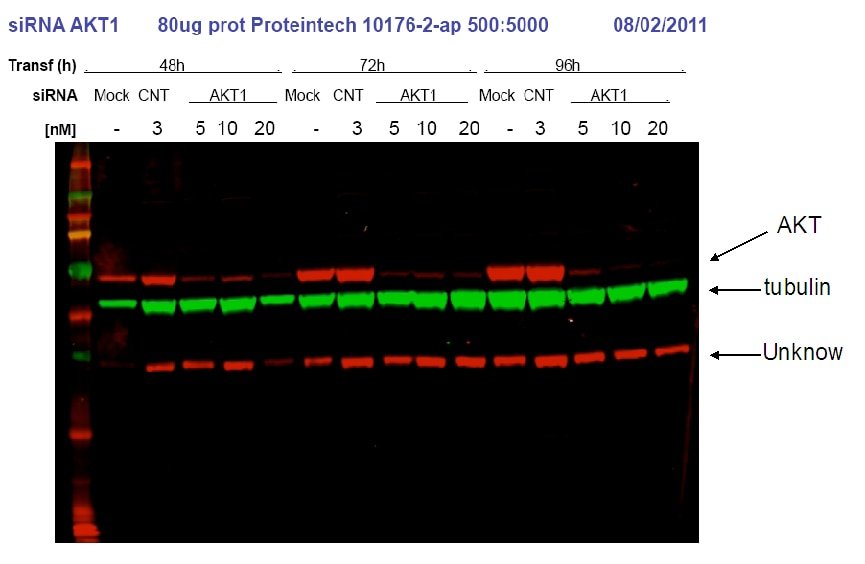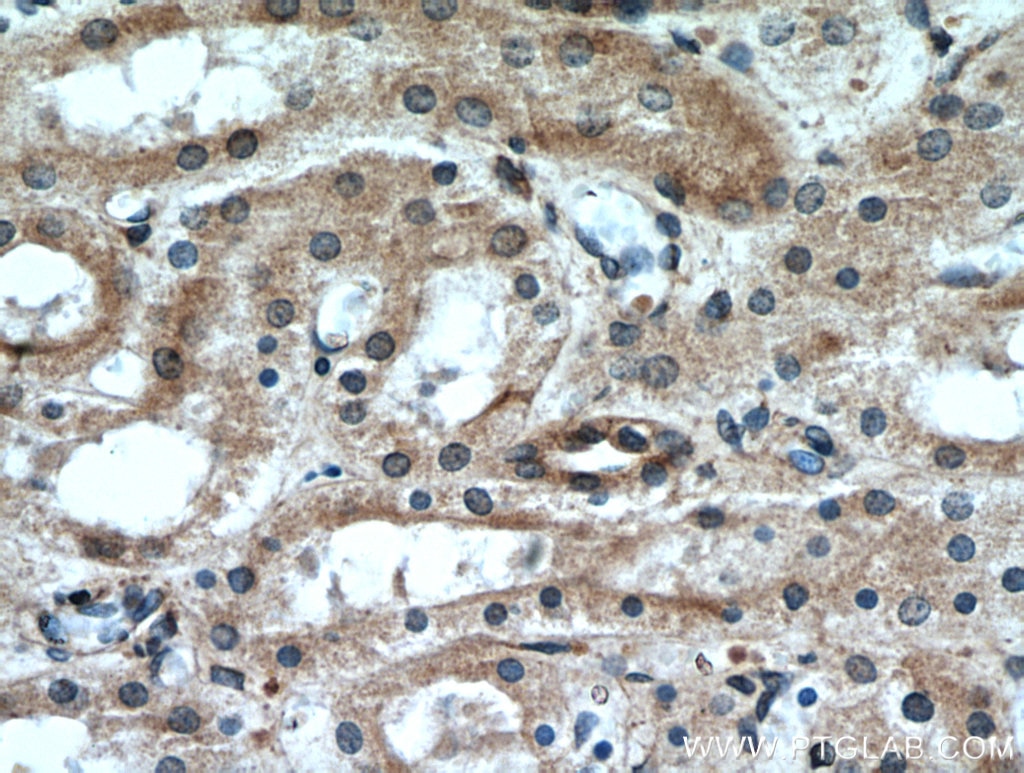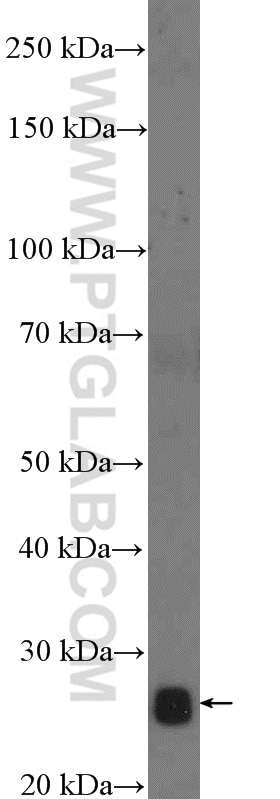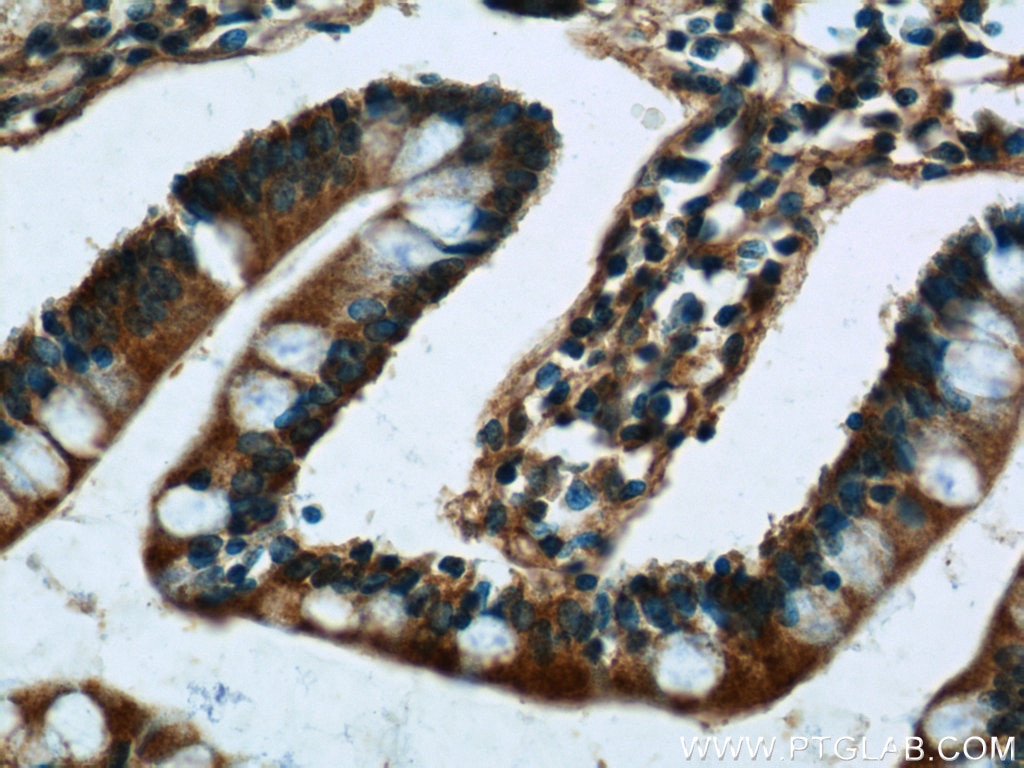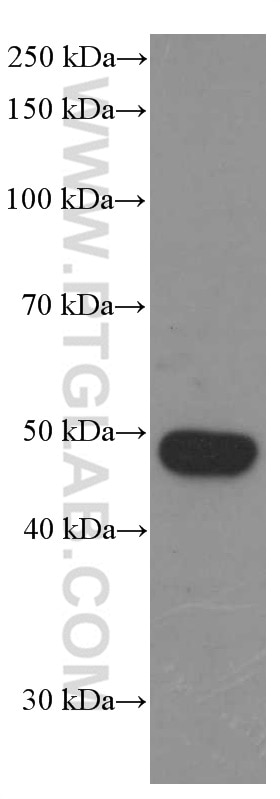- Featured Product
- KD/KO Validated
FSTL1 Polyklonaler Antikörper
FSTL1 Polyklonal Antikörper für IHC, IP, WB, ELISA
Wirt / Isotyp
Kaninchen / IgG
Getestete Reaktivität
human, Ratte und mehr (1)
Anwendung
WB, IP, IHC, IF, CoIP, ELISA
Konjugation
Unkonjugiert
Kat-Nr. : 20182-1-AP
Synonyme
Galerie der Validierungsdaten
Geprüfte Anwendungen
| Erfolgreiche Detektion in WB | A2780-Zellen, A431-Zellen, C6-Zellen, HeLa-Zellen, humanes Plazenta-Gewebe |
| Erfolgreiche IP | A2780-Zellen |
| Erfolgreiche Detektion in IHC | humanes Plazenta-Gewebe, humanes Gliomgewebe, humanes Pankreasgewebe, Rattenhodengewebe, Ratten-Kolongewebe Hinweis: Antigendemaskierung mit TE-Puffer pH 9,0 empfohlen. (*) Wahlweise kann die Antigendemaskierung auch mit Citratpuffer pH 6,0 erfolgen. |
Empfohlene Verdünnung
| Anwendung | Verdünnung |
|---|---|
| Western Blot (WB) | WB : 1:2000-1:10000 |
| Immunpräzipitation (IP) | IP : 0.5-4.0 ug for 1.0-3.0 mg of total protein lysate |
| Immunhistochemie (IHC) | IHC : 1:50-1:500 |
| It is recommended that this reagent should be titrated in each testing system to obtain optimal results. | |
| Sample-dependent, check data in validation data gallery | |
Veröffentlichte Anwendungen
| KD/KO | See 4 publications below |
| WB | See 10 publications below |
| IHC | See 8 publications below |
| IF | See 3 publications below |
| IP | See 1 publications below |
| CoIP | See 1 publications below |
Produktinformation
20182-1-AP bindet in WB, IP, IHC, IF, CoIP, ELISA FSTL1 und zeigt Reaktivität mit human, Ratten
| Getestete Reaktivität | human, Ratte |
| In Publikationen genannte Reaktivität | human, Maus |
| Wirt / Isotyp | Kaninchen / IgG |
| Klonalität | Polyklonal |
| Typ | Antikörper |
| Immunogen | FSTL1 fusion protein Ag14057 |
| Vollständiger Name | follistatin-like 1 |
| Berechnetes Molekulargewicht | 308 aa, 35 kDa |
| Beobachtetes Molekulargewicht | 35-40 kDa |
| GenBank-Zugangsnummer | BC000055 |
| Gene symbol | FSTL1 |
| Gene ID (NCBI) | 11167 |
| Konjugation | Unkonjugiert |
| Form | Liquid |
| Reinigungsmethode | Antigen-Affinitätsreinigung |
| Lagerungspuffer | PBS mit 0.02% Natriumazid und 50% Glycerin pH 7.3. |
| Lagerungsbedingungen | Bei -20°C lagern. Nach dem Versand ein Jahr lang stabil Aliquotieren ist bei -20oC Lagerung nicht notwendig. 20ul Größen enthalten 0,1% BSA. |
Hintergrundinformationen
Follistatin-like 1 (FSTL1), initially discovered as a TGF-β1-induced gene, encodes a 308 amino acid secreted 45-55 kDa glycoprotein with a follistatin domain and two non-functional calcium-binding motifs. FSTL1 has been reported to be involved in the fate determination and maturation of epithelial cells. Ablation of the FSTL1 gene in the mouse results in several structural developmental defects and neonatal lethality due to respiratory failure, demonstrating its functional importance. FSTL1 has been reported to exhibit both pro- and anti-inflammatory actions, with a specific anti-apoptotic and protective effect in cardiac or renal cell injury. Zwijsen et al. (1994) detected several isoforms of FSTL1 with molecular masses of 40 to 48 kD which differs from the 50- to 55-kD products detected by Tanaka et al. (1998) (OMIM).
Protokolle
| Produktspezifische Protokolle | |
|---|---|
| WB protocol for FSTL1 antibody 20182-1-AP | Protokoll herunterladen |
| IHC protocol for FSTL1 antibody 20182-1-AP | Protokoll herunterladen |
| IP protocol for FSTL1 antibody 20182-1-AP | Protokoll herunterladen |
| Standard-Protokolle | |
|---|---|
| Klicken Sie hier, um unsere Standardprotokolle anzuzeigen |
Publikationen
| Species | Application | Title |
|---|---|---|
J Exp Med EGF hijacks miR-198/FSTL1 wound-healing switch and steers a two-pronged pathway toward metastasis. | ||
Bone Res Single cell analysis reveals inhibition of angiogenesis attenuates the progression of heterotopic ossification in Mkx-/- mice. | ||
Cancer Res Follistatin-like Protein 1 Inhibits Lung Cancer Metastasis by Preventing Proteolytic Activation of Osteopontin.
| ||
Cell Death Dis FSTL1 interacts with VIM and promotes colorectal cancer metastasis via activating the focal adhesion signalling pathway. | ||
Aging (Albany NY) Follistatin-like 1 deficiency impairs T cell development to promote lung metastasis of triple negative breast cancer.
| ||
Am J Cancer Res FSTL1 promotes growth and metastasis in gastric cancer by activating AKT related pathway and predicts poor survival.
|
